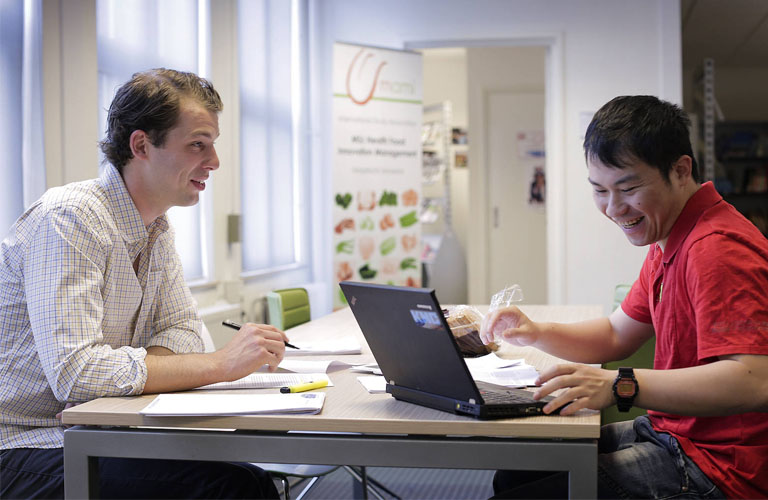Research
The research program of the Department of Marketing and Supply Chain Management is inspired by relevant and practical challenges in the field. Curiosity in theory and methodology development drives our excellent researchers aiming for contributions at the top scientific journals. Special focus is given to digital technology which is at the heart of marketing and supply chain management to futurize industry growth and create sustainable businesses. In particular, we perform research in the following domains:
Services
We are very proud of our excellent reputation in the field of services marketing, dating back to the foundation of the department. Our research in this area has covered a wide variety of service topics. Our current research focuses on service innovation to strategize, create and maintain customer relationships. Hence most recent service publications contribute to our understanding of service technologies (e.g., virtual reality / augmented reality, service robots), service industries (e.g., healthcare, finance), service processes (e.g., customer co-creation, service design) and outcome (e.g., customer engagement, service loyalty).
Digital Marketing
We focus on electronic commerce, interactive marketing, social media, and data mining. Research methods range from qualitative research (e.g., web-search based research, consumer culture theory, and linguistics) to large-scale quantitative research with help of (big) data mining, text, picture and video mining, network analytics and artificial intelligence algorithms. Our research supports the understanding of the digital transformation and its opportunities and risks for individuals, organisations and society at large.
Networks and Innovation
We examine value creation for innovation (with suppliers, customers, or experts), information flow in supply chains, and outsourcing strategies (e.g., make-or-buy decisions). Supply chain research is carried out in close collaboration with industry. New research streams are infused by business and address relevant problems in industry. Recent examples are coordination in the supply chain, fresh food packaging challenges as well as blockchain based strategies, and the creation of sustainable supply chains.
Consumer Decision Making
The Consumer Behavior Lab @ Maastricht University is an interdisciplinary group of faculty and PhD students. We mainly make use of experimental research to better understand consumer preferences, decision making, and judgment. Key research areas include self-control, goal setting, social influence, dual processing, digitalization, and self-perception. Our studies are conducted online, in one of our labs (BEElab or DeXlab), or in the field. We make use of various research methods including EEG, fMRI, TMS, eye tracking, and skin conductance. We offer courses aimed at understanding consumer behaviour and decision making at bachelor's, master's, and PhD levels. In these courses, we discuss topics like nudging, social influence, psychology of eating, heuristics, etc. Our work aims at helping consumers optimize their decision-making (e.g., financial decision making or healthy eating) and informs practice and policy (e.g., on product design, advertising, and communication). Research from the Consumer Behavior Lab is presented at international conferences and routinely published in top-ranked and peer-reviewed academic journals.
Click here to visit our LinkedIn.
Purchasing
We are an IPSERA regional center of excellence, a quality label given by the international association of purchasing academics. Our research focus is on buyer-supplier relationships, global sourcing, sustainability in purchasing, risk assessment, and the human factor in purchasing. In doing so, we typically start from the purchasing function in a company and investigate the relationship with the environment (incl. other companies, stakeholders, people). We typically rely on qualitative research (case-based research), but are also active in methodology development and also make use of more advanced quantitative approaches.

Next to our core research themes, a group of researchers and educators in both marketing and finance share and combine their scholarship and expertise in the Marketing-Finance Research Lab (MFRL) through interdisciplinary research, education, and engagement with business.
Read more
More information
- Conferences
- Papers / forthcoming publications
- Interested in doing a PhD?
We're continously looking for candidates. - Seminars